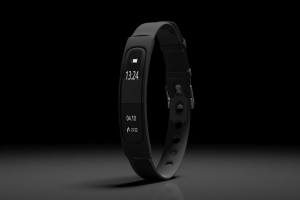Charging Ahead: The Key Advantages of Lithium-Ion Battery Technology
Lithium-ion batteries have become a dominant force in the field of energy storage, powering everything from smartphones to electric cars and renewable energy systems. This batteries’ extensive use is not a coincidence; they provide a number of significant benefits that make them the top alternative for a variety of applications. We’ll examine the key benefits of lithium-ion battery technology in this post.

High Energy Density
Since lithium-ion batteries can store a lot of energy in a very tiny and light form, they have an extraordinary energy density. For applications where weight and space restrictions are crucial, such as in portable electronics and electric vehicles (EVs), this high energy density is essential.
Lightweight Design
Lithium-ion batteries are notably lighter than their counterparts, making them ideal for portable devices and vehicles where weight is a crucial factor. This characteristic significantly contributes to the improved performance and efficiency of EVs.
Longer Cycle Life
As opposed to other battery technologies, lithium-ion batteries often have a longer cycle life. They last longer before needing replacement since they can tolerate a large number of charge and discharge cycles. Many lithium-ion batteries are capable of enduring thousands of cycles, enhancing their durability and reliability.
Rapid Charging
In comparison to other battery types, lithium-ion batteries have a quicker rate of charging. This is a significant advantage, especially for consumer electronics, where quick recharging is essential. Additionally, it contributes to the adoption of fast-charging infrastructure for EVs, making them more practical for everyday use.
Low Self-Discharge Rate
Due to its low self-discharge rate, lithium-ion batteries may maintain their charge for a long time without suffering a substantial loss in capacity. This function is very helpful in situations when energy storage is essential, such as in portable gadgets and backup power systems.
Versatility
Lithium-ion batteries are suitable to a wide range of applications. They are used in smartphones, laptops, tablets, electric vehicles, grid-level energy storage, and even aerospace applications. They are a popular choice across a variety of sectors because of their adaptability.
High Voltage and Efficiency
Lithium-ion batteries operate at a higher voltage than many other battery technologies, which results in improved efficiency and performance. This higher voltage allows for the delivery of more power, enhancing the capabilities of devices and vehicles.
Maintenance-Free Operation
Almost no maintenance is required for lithium-ion batteries. They don’t require routine maintenance, such as topping off electrolyte levels, like some other battery kinds do. They are a sensible option for both consumers and enterprises because of their simplicity of usage.
Environmental Friendliness
Lithium-ion batteries have a relatively lower environmental impact compared to some other battery chemistries. Additionally, their use in electric vehicles contributes to a reduction in greenhouse gas emissions, supporting global efforts to combat climate change.
Ongoing Innovation
Lithium-ion battery technology is still developing, and current studies are aimed at improving performance, security, and sustainability. Lithium-ion batteries will continue to lead the way in energy storage technologies for years to come because to this dedication to innovation.
In conclusion, lithium-ion battery technology is a game-changer in the world of energy storage. Its high energy density, lightweight design, long cycle life, rapid charging capabilities, and versatility have made it the preferred choice for a wide array of applications. As technology continues to advance, we can expect even more impressive developments in lithium-ion battery technology, further solidifying its place as a driving force behind the electrification of our world.
Environmental Sustainability
Lithium-ion batteries have an environmental edge over traditional fossil fuels. Their use in electric vehicles (EVs) significantly reduces greenhouse gas emissions. As the world embraces renewable energy sources, such as solar and wind power, lithium-ion batteries also play a pivotal role in storing this clean energy for use when the sun isn’t shining or the wind isn’t blowing. This encourages the shift to a low-carbon, more sustainable energy system.
Compact and Space-Efficient
For applications where space is limited, lithium-ion batteries shine. Their compact design allows for efficient use of space, making them suitable for smaller electronic devices, like smartwatches and drones, as well as larger installations like home energy storage systems and EVs. This compactness translates to greater flexibility in product design and usage.
Enhanced Safety Features
More advanced safety features are now possible because to recent developments in lithium-ion battery technology. These include enhanced thermal management systems, protection circuits, and materials that are more resistant to overheating and thermal runaway. These safety enhancements ensure that lithium-ion batteries are safer for consumers and less prone to catastrophic failures.
Low Maintenance Requirements
Lithium-ion batteries have minimal maintenance requirements, making them user-friendly and cost-effective. Unlike some other battery types that may require regular maintenance, such as topping up electrolytes, lithium-ion batteries are virtually maintenance-free, saving both time and money.
Wide Adoption in Renewable Energy
The integration of renewable energy sources into the electricity system relies heavily on lithium-ion batteries. When energy demand is high or energy production is low, they release excess energy that has been created from sources like solar panels and wind turbines that they have stored. This smoothing effect on energy supply contributes to grid stability and reliability.
In conclusion, the advantages of lithium-ion battery technology extend far and wide, from improving the performance and efficiency of consumer electronics to revolutionizing transportation and energy storage. They are the preferred option for a variety of applications due to their high energy density, quick charging, adaptability, and constant innovation. Lithium-ion batteries will stay at the vanguard as the globe continues its shift to a more sustainable and electric future, powering our gadgets, cars, and renewable energy infrastructure.






